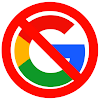ADVICE: Independent Author vs. Self-Publisher

Is there a difference? Yes!
Aside from the banner nod to the worst in self-publishing... Let us clarify three commonly [mis]used terms. They have been rendered meaningless as buzzwords through hearsay or purposeful misrepresentation. Time to get informed.
Traditional Author / Publisher
First, there are no "traditions" in publishing to those with extensive first-hand experience in this industry. Publishing—like any other "industry"—has been in a state of constant change. This started with the first Gutenberg press that allowed mass production of print books. Change is evolution, not the creation or destruction of tradition.
Evolution in industry is tumultuous and destructive, just like in a living species. New consumes or replaces old as processes involved are torn down—before, during, or after failing—to [re]build new ones. The old does not vanish in any profession; it merely alters its form.
When you use the adjective "traditional" vs. "professional" in relation to publishing and authorship, you are seen as misinformed, derogatory or worse by those who know the difference.
Q: So can an "independent" author also be a "professional" author?
A: Yes or maybe; as with "traditional," the term "professional" has a defined meaning that matters inside your industry. Use them incorrectly, and those who know better will immediately spot your mistake.
Independent Author / Publisher
The term "independent" requires reference: independent of what? For an author, this means
- publishing without an established contract for a completed or in-process publication, and
- personally financing all processes that take the finished work to the marketplace in a professional manner.
In other words, an independent author [I.A.] does not have a publisher paying for any processes involved. An I.A. seeks true professionals for any work needed that cannot be completed personally in a professional manner. In the end, a book is a product for purchase by readers (as a customer type), and the I.A. will be competing against the products of professional publishers.
Within this frame of reference, there is no such thing as an "independent publisher." Such an entity would be publishing without being a part of the industry—and thereby not putting any publications into the established marketplace. A publisher cannot be independent unless disconnected from all levels of the industry as whole, including distribution.
The correct term for non-corporate, non-contract or small business publishers is small/independent "press." They usually do not offer inclusively full services as with a publisher; for services such as editing (structural, line, copy, and/or proof), promotion, etc., they charge the author fees. Another sign the operation is a press and not a publisher.
A true independent "author" still puts a publication through all professional processes. This includes editing phases of multiple types, publication design (cover AND interior), promotional plan, distribution plan, etc., all of which are paid out of pocket. The consultants they hire are themselves professionals and not just people who can do what the author cannot "on the cheap side." Hiring professional level consultants innately sets independent authors apart from self-publishers.
Self-Publisher
In short, anyone else involved in publishing their own works who does not qualify above as an independent author. In other words, those putting out whatever they can, as fast as they can, for as little as they can get away with.
Yes, there are many layers involved and the division between self-publisher and independent author is a gray area; it is a range, not a division. And yes, many independent authors who have worked hard to get where they are in the market started off as just self-publishers.
Professional
This term has a stable meaning based on education, training, and or experience. Authors as word-smiths should acknowledge this to the benefit their current and future standing in the industry.
Professional [Adjective]Professional [Noun]
- Relating to or belonging to a profession.
- Engaged in a specified activity as one's main paid occupation rather than as an amateur.
[https://en.oxforddictionaries.com/definition/professional]
- A person engaged or qualified in a profession.
- Engaged in a specified activity as one's main paid occupation rather than as an amateur.
- A person engaged in a specified activity, especially a sport, as a main paid occupation rather than as a pastime.
- A person competent or skilled in a particular activity.
What's the Point?
Before anyone succumbs to the lure of bluster in using these terms, there is no need to misrepresent yourself. We were/are all at one time non-professionals. Only pretenders who use "professional" for self-importance will look down on those striving for such status. Those who use such a term to turn up their noses at you are not as professional as they assume.
Publishing and authorship are big worlds with room for everyone. Real professionals know this. When they see someone working hard to become such, they will offer a hand-up with advice and other assistance. The point to all of this is that words have stable meanings outside of the hype and spin and pitch. Any author should know this.
Be honest and accurate in all ways as an author about being an author of any classification. You will attract the best in others, and they will respect your honesty in the realm of self-publishing. Avoid the self-proclaimed "gurus" of the self-publishing world and seek those who also disdain posturers. In this, you will find the best like-minded people. They are in the minority in the self-publishing world and thereby eager for your good company.
—The Staff, NDAS![N.D. Author Services [NDAS]](https://blogger.googleusercontent.com/img/b/R29vZ2xl/AVvXsEjGhwXPd7BQfCEhHu95PcxamyThf4jeljbWcLvrSKosnWsuleuz2iekozxOuan7pLgbZB9nYEJEUlcS_IYOAyarPqTJDbICo37gdfUvCWwDqG-m_DjX3ieg6egHYDfs2A_BaysT3YPphNyA/s1600/serveimage_trim.jpeg)



